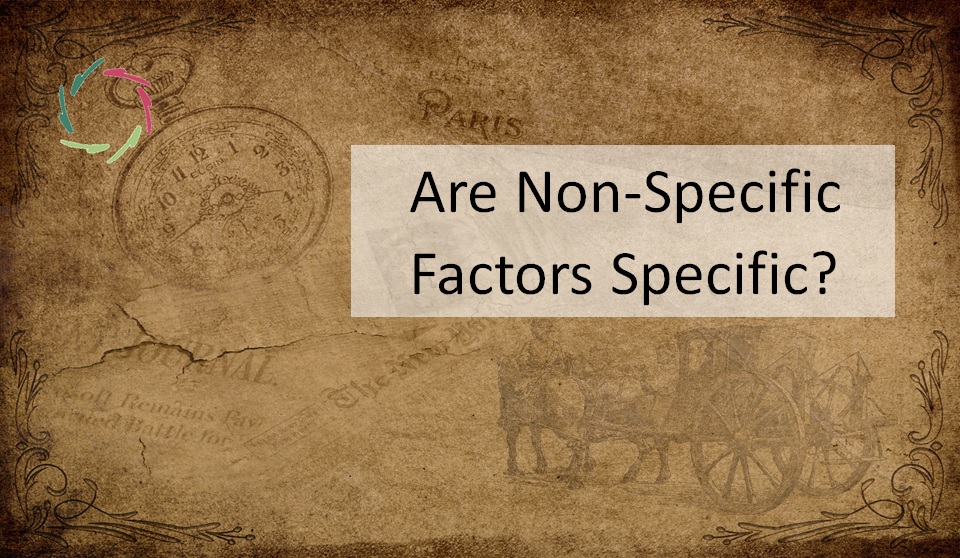Psychotherapy’s Doors

… should be opened. The contention that psychotherapy plays its role only at the level of conscious processing is holding humanity back manifold.
Cleansing the doors?
“If the doors of perception were cleansed every thing would appear to man as it is, Infinite. For man has closed himself up, till he sees all things thro’ narrow chinks of his cavern.” [William Blake (1757–1827), The Marriage of Heaven and Hell]
This quote is, of course, from long before modern insights in non-conscious processing. Nowadays, we have the means to at least partly open the doors in scientifically valid ways. Yet in the domain of healing, we have not seriously done so.
Therefore, other doors towards progress in many domains also remain all too closed.
Pretending to deliver the necessary doors and then holding these pretty much shut is worse than nothing.
What is holding us back is a basic cognitive illusion in which there is no non-conscious, subconceptual processing ― therefore, no doors to be cleansed. [see: “The Basic Cognitive Illusion”]
Therefore, no cleansed therapy of the psyche and no clear insight into what truly works and towards what, in anything mind-related. [see: “Hooray it Works!“]
Culturally, we’ve got the psychotherapy we deserve.
R.T. Fancher already pointed out in Cultures of Healing [Fancher, 1995] that mental healing methodologies have not been developed based on rational insight into the human mind. They are like subcultures, each thriving in some niche related to sociocultural embedding. What people are most willing to accept, survives. There are many of these subcultures ― some 450 in the US alone. Many more have existed for a while but didn’t find a niche. This simple niche-finding is how we got to present-day psychotherapies. Vulnerabilities and good marketing trump rationality and sound science. [see: “Are RCTs valid in Psychotherapy?”]
This way, the resulting ensemble makes up a patchwork, corresponding with the idea of psychotherapies being placebos. [see: “The Placebo Patchwork”]
Placebos are principally closed doors. Therefore, what needs to be opened is the placebo itself. This is, in the first place, a scientific-philosophical issue. A genuinely humanistic take would have already long made the whole field open. The failure to do so has lots of profound repercussions.
Door towards mental healing
If only out of respect for psychotherapists’ well-meant efforts, rationality should prevail. [see: “Is Psychotherapy Dangerous?”]
With the door +/- closed, there is comfortable numbness but no profoundly sustainable mental healing. [see: “Mental Change: How it Works“] Nature doesn’t take this comfort for granted. So, after a while, more problems appear. This way, the field doesn’t fulfill its promise.
Door towards psycho-somatics
With the door +/- closed – from the viewpoint of merely conscious mental processing – it’s by far impossible to discern how the mind can influence the body. Then why bother about psycho-somatics?
Nevertheless, many scientific data don’t fit with this. I guess that psycho-somatics is better placed to eventually, gradually, open the door through incontestable research. Keep an eye on psychoneuroimmunology [see: “Psycho-Neuro-Immunology”]
Also, there’s a lot of money at stake. At present, this keeps the door tightly closed, but that might quickly change.
COVID, the atrocious example
There is a substantial influence of the mind on the progression of COVID-19 in each affected individual. [see: “Minding COVID: a Different Story“] We have no research on how significant this influence is, nor on what can be optimally helpful from the inside out.
Given the volume of suffering, this is atrocious neglect.
Doors towards many sociocultural issues
Psychotherapy’s responsibility is the relief of suffering AND fostering human growth at the same time. The synthesis of both is the (only) way towards a Compassionate world.
Opened doors will engender many essential changes. This is bound to happen. [see: “The Future is Open”]
Meanwhile… what a pity!
Bibliography
[Fancher, 1995] Fancher, R.T., Cultures of Healing. W.H. Freeman, New York.


